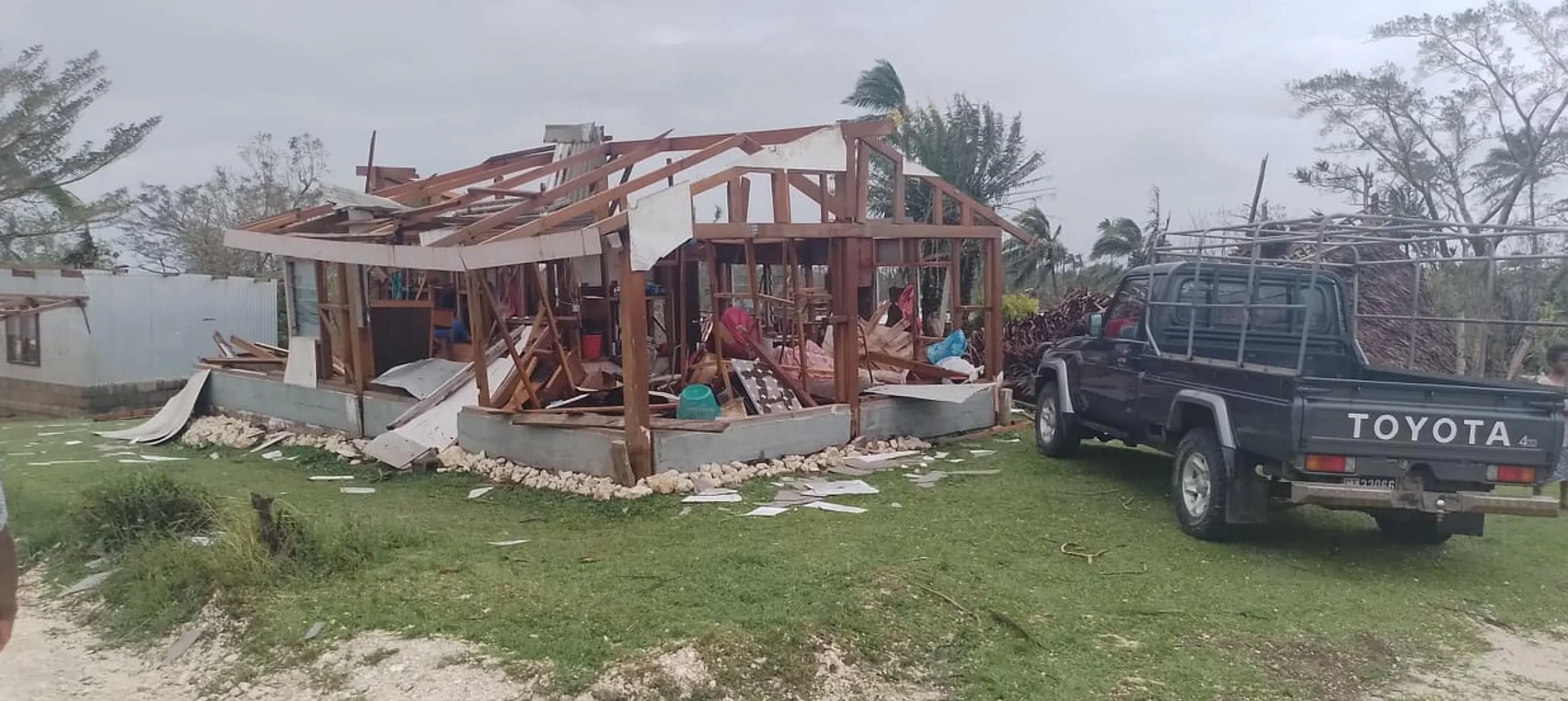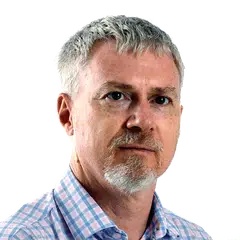Facing climate calamity, Vanuatu takes on big polluters at COP28
Sign up now: Get ST's newsletters delivered to your inbox

Vanuatu's Climate Change and Environment Minister Ralph Regenvanu.
PHOTO: AFP
DUBAI – At the COP28 climate talks in Dubai
For Vanuatu, there is a good reason to push hard for an ambitious outcome from the talks. Such is the scale of devastation being wrought by climate change that the future of the Pacific island nation is at stake, said Climate Change and Environment Minister Ralph Regenvanu.
“We can see a future that’s very bleak for our children and grandchildren,” he told The Straits Times’ Green Pulse podcast at COP28 in the United Arab Emirates.
Vanuatu, about 1,750km east of northern Australia, is a volcanic chain of about 80 islands with a population of just more than 300,000.
Over the years, it has forged a strong international coalition with other island nations and has led a global campaign to push the fossil fuel industry and big emitting nations to face up to the impacts of their greenhouse gas pollution. Burning fossil fuels is the main cause of global warming.
And it achieved a major win at the COP28 talks – an agreement to initialise a fund to pay for the irreparable loss and damage suffered by poorer nations caused by climate change.
Vanuatu launched the idea of a loss and damage fund in 1991, and faced years of pushback from rich nations fearing compensation payments.
The nation achieved another win in 2023.
In March, the United Nations General Assembly adopted a resolution by Vanuatu to ask the International Court of Justice (ICJ), the world’s top court, for an opinion on the legal obligations of countries to protect current and future generations from climate change.
The resolution was backed by a slew of states including Singapore,
An opinion from the court, which is still deliberating, could accelerate global climate action.
Vanuatu has been consistently ranked by the UN University in its world risk index as the country with the highest disaster risk worldwide, Mr Regenvanu said.
It suffers from earthquakes as well as volcanic eruptions, but it is the increasing severity of cyclones, floods and warming seas that is causing compounding disasters, draining the nation’s finances and ruining livelihoods.
“We don’t have the financial capacity to build resilience and to respond to these constant disasters, which makes us continually disaster-prone,” the minister said.
“It takes us years, for example, to rebuild from certain severe disasters. The difficulty of accessing climate finance is one of the reasons why we are here in Dubai to talk about climate finance and make it easier for countries like us to get the finance we need to build our resilience,” he added.
Building resilience, such as strengthening roads, homes and key buildings including schools and hospitals, would mean “we don’t have to continually just be building back every few months after every disaster hits us”.
In 2015, maximum category 5 Cyclone Pam caused widespread damage. “It cost us 64 per cent of our GDP (gross domestic product).”
Since then, Vanuatu has been hit by other cyclones, including two in February and March 2023, and Cyclone Lola in October 2023.
COP28 is also about accountability, Mr Regenvanu said. That means rich nations need to help with financing and other means of support.
“Vanuatu historically has been responsible for 0.00016 per cent of global emissions. And yet we are a country most at risk and experiencing right now loss and damage at a much higher rate than we expected,” he added.
“There is an accountability and justice issue because why should we face these enormous costs and enormous suffering to our people?”

The damaged caused by Cyclone Lola in Central Pentecost, in the northern province of Vanuatu in October.
PHOTO: VANUATU RED CROSS SOCIETY
At COP28, Vanuatu and the other members of the 39-nation Alliance of Small Island States (Aosis) want a decision on phasing out fossil fuels.
The bloc also wants an overall outcome that will ensure the world will not slip past 1.5 deg C of global average warming above pre-industrial levels, a key guard rail of the 2015 Paris climate agreement.
And crucially, Aosis wants an urgent boost in climate finance.
One easy source for Vanuatu would be the tens of billions of dollars neighbouring Australia spends subsidising its fossil fuel industry. Australia is the world’s third-largest fossil fuel exporter.
Mr Regenvanu’s message to Australia? “Just take the subsidies that you currently give your fossil fuel industry and move them to help us build our resilience in the Pacific.”
For now, the future is very uncertain for Vanuatu, he said
“We are going to see a decline in our standard of living. Families, communities, individuals are living in a constant state of danger,” he added.
“Our children definitely are going to have worse lives than we’ve had.”



